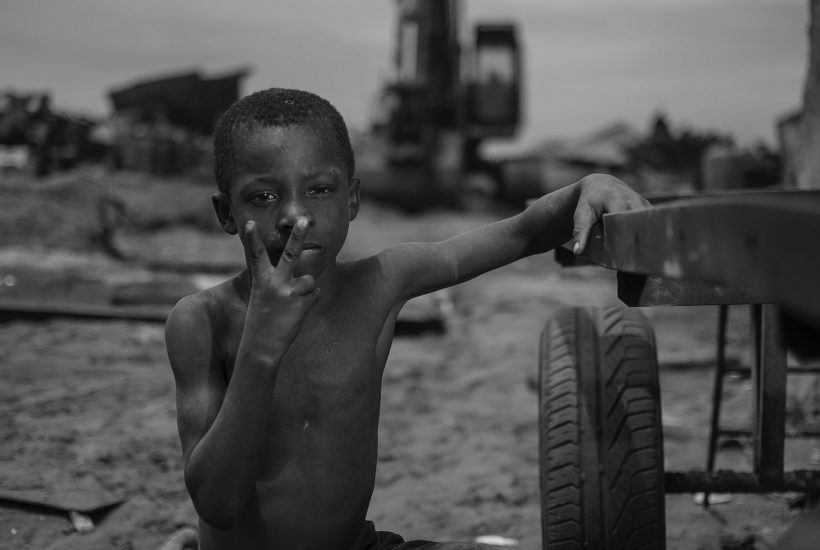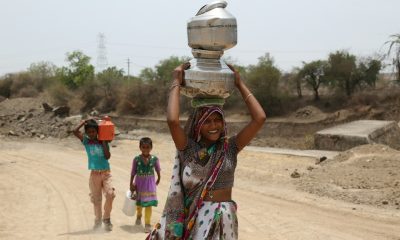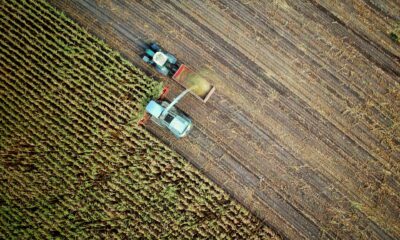Africa
The battle for food security in West Africa
Due to the insecurity in West Africa, people are finding it increasingly difficult to access food. The main reasons are inter-community violence, insecurity and displaced people in the region. According to Mahalmoudou Hamadoun, the number of people in need of food has doubled this year to 4.5 million. Nigeria, Niger, and Burkina Faso are the most affected by this problem.

At the end of 2019, the Sahel, and more broadly West Africa, is facing a paradox. On the one hand, up to 15% more food was produced in the region than in previous years. On the other hand, 9.4 million people in at least 16 countries are in need of food aid. Food security is the foundation of a prosperous economy, and West Africa needs to tackle this problem quickly.
To better understand this situation, this real paradox, the Food Crisis Prevention Network (FCPN) has immersed itself in figures and maps. The organization discovered that a variety of reasons are disrupting food supplies in the region. Perhaps unsurprisingly, the main reasons are the inter-community violence that continues to cause chaos in the region.
Many other publications overlook breaking economic news focused on investing or other business strategies. The Born2Invest mobile app helps readers stay on top of the latest news about Africa, get breaking stories, and financial affairs of the world.
An avoidable crisis
According to Mahalmoudou Hamadoun, coordinator of the regional food security program (Inter-State Committee for Drought Control in the Sahel, CILSS), the number of people in need of immediate assistance is “double.” that of the previous year at the same time. The figure has swelled to 4.5 million, and the increasing conflicts in the region constitute “an aggravating factor in food insecurity” in the area.
The three countries most affected by hunger (in a “crisis” phase, at stage three on a scale of five) are Nigeria (four million people), Niger (1.5 million) and Burkina Faso (1.2 million), said the Food Crisis Prevention Network (RPCA), also present at the Paris meeting. It should be noted that, of this total, 619,000 people are in “emergency situation,” i.e. in phase four on a scale of five, the fifth phase being that of a declared famine.
Insecurity has caused a “sharp increase” in the number of people displaced from their homes, “increasing pressure on food resources” and disruption of “local livelihoods” such as markets, according to RPCA. According to the network’s projections, from June to August 2020, the number of people in need of food aid will be even higher, at 14.4 million.
Insecurity and inter-community violence exacerbate the difficulties
RPCA meets annually in December in Paris or an African country to forecast the region’s food needs in the spring during the delicate “lean season,” when the previous year’s harvests are consumed while the current years are not yet harvested.
“Civil insecurity has increased this year in Mali, Burkina Faso, and Nigeria. As a result, mainly rural populations are prevented from accessing their livelihoods, agriculture or livestock, while they continue to suffer from climate insecurity,” Mahalmoudou Hamadoun added to Agence France-Presse.
And yet, on the production side, the results are rather positive. According to official figures, cereal harvests were slightly higher than last year (+1.7%) and compared to the average of the last five years (+14%), at 75.1 million tonnes. Tuber and root production, estimated at 191 million tonnes, increased by 17.1% in the 16 countries compared to the five-year average.
Livestock is at the heart of local violence
It is on the livestock side that the crisis is most illustrated by “significant fodder deficits in some localities in the Sahel band” (Burkina Faso, Mali, Mauritania, Niger, Senegal, and Chad), Mauritania and Senegal being the most affected, the network said.
If this problem can’t be solved, it won’t matter how much more food the region produces. Increasing food security and rebuilding supply chains is the only way to bring prosperity back to West Africa.
__
(Featured image by Nate Greno via Unsplash)
DISCLAIMER: This article was written by a third party contributor and does not reflect the opinion of Born2Invest, its management, staff or its associates. Please review our disclaimer for more information.
This article may include forward-looking statements. These forward-looking statements generally are identified by the words “believe,” “project,” “estimate,” “become,” “plan,” “will,” and similar expressions. These forward-looking statements involve known and unknown risks as well as uncertainties, including those discussed in the following cautionary statements and elsewhere in this article and on this site. Although the Company may believe that its expectations are based on reasonable assumptions, the actual results that the Company may achieve may differ materially from any forward-looking statements, which reflect the opinions of the management of the Company only as of the date hereof. Additionally, please make sure to read these important disclosures.
First published in Le Point, a third-party contributor translated and adapted the article from the original. In case of discrepancy, the original will prevail.
Although we made reasonable efforts to provide accurate translations, some parts may be incorrect. Born2Invest assumes no responsibility for errors, omissions or ambiguities in the translations provided on this website. Any person or entity relying on translated content does so at their own risk. Born2Invest is not responsible for losses caused by such reliance on the accuracy or reliability of translated information. If you wish to report an error or inaccuracy in the translation, we encourage you to contact us.

-

 Impact Investing2 weeks ago
Impact Investing2 weeks agoEnfinity Launches First Solar Plant in Italy with Microsoft
-

 Crypto1 day ago
Crypto1 day agoBitcoin Wavers Below $70K as Crypto Market Struggles for Momentum
-

 Markets1 week ago
Markets1 week agoSilver Dips Sharply, While Gold Gains Amid Mixed Stock Market
-

 Africa5 days ago
Africa5 days agoTunisia Holds Interest Rate as Inflation Eases, Debate Grows
























